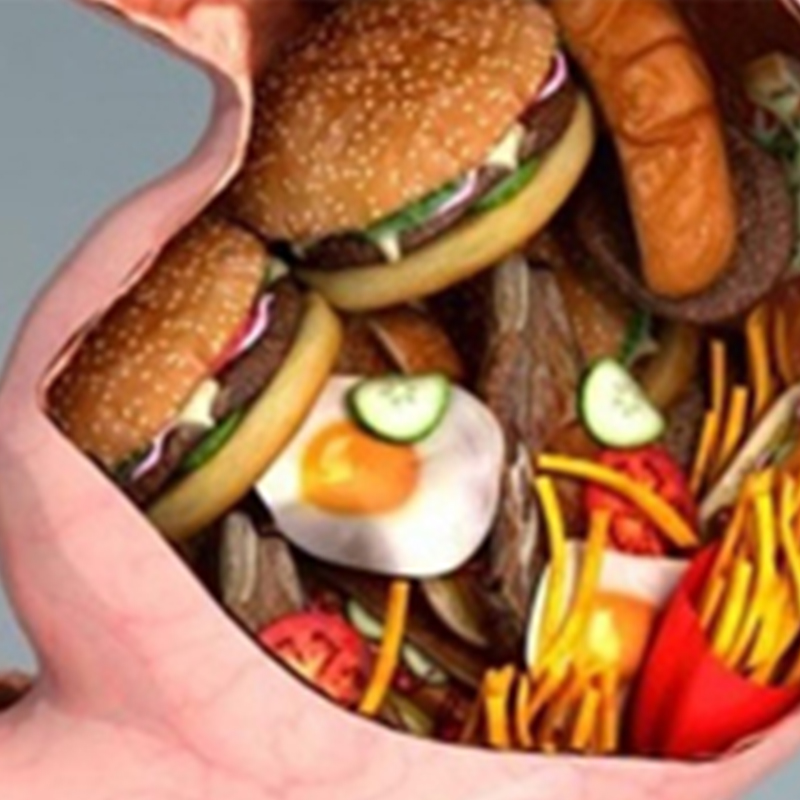
HIGH CHOLESTROL
High cholesterol (hypercholesterolemia or hyperlipidemia) refers to the presence of higher than normal amounts of total cholesterol circulating in the bloodstream.
Cholesterol is a type of fat found in the body and is needed for vital body functions such as building new cells, producing hormones & insulation. The liver makes all the cholesterol which is required by the body.
Cholesterol is of two types: LDL (bad)HDL (good) LDL means a high chance of cardiac disease, while HDL means less or decreased risk Cholesterol increases the inflammatory disease of the arterial walls called as atherosclerosis in which there is blocking of artery due to fat deposition, which ultimately leads to heart attack. Normal levels: 200 mg|dl.
CAUSES
- Elevated cholesterol in the blood is due to abnormalities in the levels of lipoproteins, the particles that carry cholesterol in the bloodstream. This may be related to diet, genetic factors (such as LDL receptor mutations in familial hypercholesterolemia) and the presence of other diseases such as diabetes and an under active thyroid. The type of hypercholesterolemia depends on which type of particle (such as low-density lipoprotein) is present in excess.
- Hereditary i.e. it runs in the families
- Obesity.
- Sedentary life style (no walk no exercise)
- Mental stress.
- Diabetes
- Steroids abuse and other diseases of the thyroid (Hypothyroidism), kidney & liver.
SYMPTOMS
- High cholesterol doesn't make you feel sick. By the time you find out you have it, it may already be clogging your arteries. So it is very important to start treatment even though you may feel fine.They are hard to find and high cholesterol is quite often detected in routine tests only Pain in chest,Obesity, Diabetes. Impotency may be due to arteries affected by excessive blood cholesterol.
- Muscle pains
- An increase in the blood level of cholesterol does not have any obvious symptoms. But is a risk factor for other conditions such as angina (pain in chest), Atherosclerosis, Heart disease, High blood pressure & Stroke.
DO'S AND DON'TS
Check your diet. Not more than 30% of total calories should be from fat.
INSTRUCTIONS FOR LOW CHOLESTEROL DIETS
- Do not use any hydrogenated fats e.g. ghee, butter, margarine (unless specified), vanaspati, coconut il, and palm oil. Use instead safflower (karadi) oil, Soya bean oil, sunflower oil, dietary, saffola, mazola or corn oil.
- Avoid egg yolks and foods containing egg yolks e.g. mayonnaise, cakes, sauces, although egg white only is permitted.
- Avoid all foods baked with fat (shortening lard etc.)e.g. cakes, pies, doughnuts etc.
- Avoid whole milk, cream, cheese, whole milk curds and sweets made with concentrated milk e.g. gulab jamun, shrikhand, Mawa, chocolates et. Use only skimmed milk and its preparations, paneer made from skimmed milk can be used.
- All organ meats are to be avoided e.g:-kidney,liver,brain,sweetbreads etc.Fat should be trimmed of all meat before use. Doeskin chicken before cooking. Avoid pork, ham and bacon. Avoid shellfish, clams, prawns, lobsters, fish roe, and fish liver oil. Use, fish and deskinned chicken. Meat used should be lean and its use judicious. Stews and meat stock if made earlier can be chilled and the congealed fat should be scraped off and discarded.
- Nuts all nuts are permitted except groundnut, cashewnuts which must be avoided.
- Decrease the use of refined foods in your diet, e.g. maida, cornflour, spaghetti, macaroni etc. Increase and include instead, high fibre foods e.g salads, greens, chapattis (made with atta), leafy vegetables etc.
- Roast and boil foods on a rack so fat can drain off. Make use of non stick vessels/pan and decrease consumption of fats and oils whilst cooking.
INSTRUCTIONS
Follow maintenance Diet-Controlled carbohydrate,controlled and modified fat, low cholesterol.
Control the carbohydrate foods that you eat. Carbohydrate (sugar and starch) foods are limited. This means that sugar is not allowed, jaggery, honey and refined foods e.g. macaroni, spaghetti, bread, biscuits should be limited. Free Foods i.e. Foods Allowed. Clear Soup Soda, Coffee Flavoring Essence Herbs Vinegar Mustard Spices.
Suggestions for Meals away from Home.
When you eat out daily, it is wise to select one particular restaurant some of your food requires special preparation. A regular customer is more like to receive special attention.
MEAT
Trim off all fat. The sagest choice is a chop, steak, chicken (deskinned) or fish. Request that the meat be made without fat. e.g. Tandoori Chicken, grilled kababs, tikkas.
VEGETABLES
Most Vegetables are not limited. However avoid those that are made in cream (malai) e.g. Vegetable Makhanwalla; cheese or whole milk. Ask that your serving of vegetables be made without fat.
SALAD
Avoid salads with cream dressings, mayonnaise, and cheese.Instead take Kachumber or mixed salads etc.
FAT
Limit the amount according to your diet plan.
BREAD
Limit according to your diet plan. Avoid, rolls, biscuits, muffins, take instead phulka, chapattis, bhakri etc.
BEVERAGE
Skim Milk, Thin lassi (non sweet) lie juice (non sweet), fresh lime and soda, coconut water, tomato juice (not tinned, non sweet) tea/coffee (non sweet) these are allowed.
DESSERT
For dessert choose a fresh fruit (not tinned) e.g fresh papaya slice, water melon slice, plums cherries, fresh orange etc.